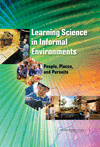
 Building Online Learning Communities by
Building Online Learning Communities by  Learning Together Online: Research on Asynchronous Learning Networks by
Learning Together Online: Research on Asynchronous Learning Networks by  The Information Commons Handbook by
The Information Commons Handbook by  Enhancing Professional Development for Teachers: Potential Uses of Information Technology, Report of a Workshop by
Enhancing Professional Development for Teachers: Potential Uses of Information Technology, Report of a Workshop by  Native on the Net: indigenous and diasporic peoples in the virtual age by
Native on the Net: indigenous and diasporic peoples in the virtual age by  From Counterculture to Cyberculture: Stewart Brand, the Whole Earth Network, and the Rise of Utopianism by
From Counterculture to Cyberculture: Stewart Brand, the Whole Earth Network, and the Rise of Utopianism by  The Virtual Window by
The Virtual Window by  Web-Based Learning: Theory, Research and Practice by
Web-Based Learning: Theory, Research and Practice by  Tech Tally: Approaches to Assessing Technological Literacy by
Tech Tally: Approaches to Assessing Technological Literacy by  Learning Science in Informal Environments: People, Places and Pursuits by
Learning Science in Informal Environments: People, Places and Pursuits by  Engines of innovation: U.S. industrial research at the end of an era by
Engines of innovation: U.S. industrial research at the end of an era by Explore. Discover. Create.
24255 Pacific Coast Highway, Malibu, CA 90263 Phone: 310.506.7273Copyright © 2022 Pepperdine University